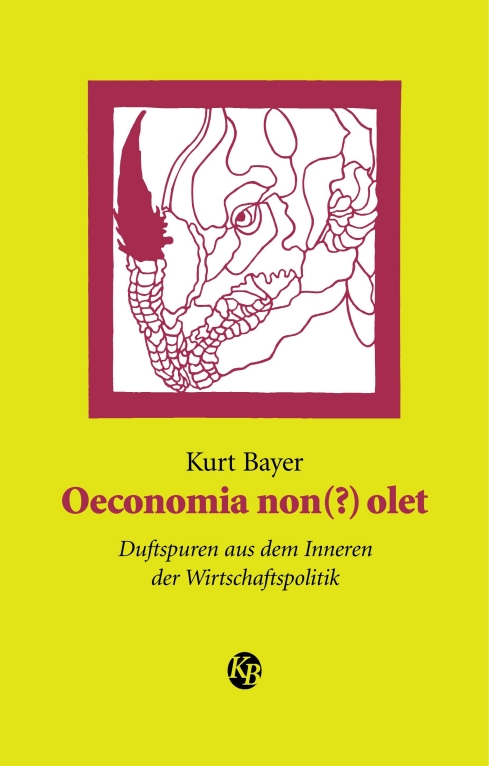An Appeal to the G-20
When in May 2009 the much-maligned Gordon Brown summoned the G-20 leaders to London to devise a joint way out of the then crisis, there was hope that the G-20 would become the new governance institution for the global economy. While at that time they gave adequate rise to this expectation with far-reaching plans to save the financial system and re-regulate them, their impetus has petered out and they have become just another talking shop where countries pursue their national interests – and forget about their responsibility for the world as a whole.In the meantime, the situation has deteriorated to such an extent that the whole world economic order, and the wellbeing of billions of citizens, is in danger: countries, especially the rich ones, have expended billions of Euros to save their banks and to stimulate their economies, resulting in the sovereign debt crisis, i.e. countries themselves in danger of insolvency; banks in the West have recently been downgraded significantly by rating agencies, mainly because they are holding so many (downgraded) government bonds from downgraded countries; there are calls (from the IMF and the EU) that banks must once more be recapitalized; the FED, the Bank of England and the ECB (among others) have engaged in “quantitative easing”, buying up all kinds of more or less shady bonds and securities to relieve banks, with the effect of extending their balance sheets to previously unimaginable sizes and quality deteriorations; downgraded countries have engaged in severe austerity programs, demanded by the IMF, the European Commission, Germany, the rating agencies (again!!) and others, with affected citizens taking to the streets in massive protests to stop their governments from destroying their hard-worked living standards, thus endangering social cohesion and even the stability of their political systems. The European Union, at this moment in the eye of the storm, while having finally – after long delays – established a too small bailout fund (at the time of this writing Slovakia has not yet voted), is once more talking of putting more money into banks, and squabbling between France and Germany, on how to do it.
The coming meeting of the G-20 Finance Ministers next weekend and that of the Heads of State at the beginning of November in Cannes does not seem to be guided by the sense of foreboding that the present threats to the world economy warrant. It would not only be a shame, but close to a tragedy, if they did not come out with a joint plan how to save the global economy. The “masters of the universe”, the financial markets, would run amok and likely destroy the functioning of the closely interdependent economies. The re-defintion of the role of the financial markets needs to be the core issue to be dealt with, after the present mess is cleared up.
Previously, there was talk about a “Bretton Woods II”, in memory of the 1944 conference where the present world economic order was agreed. Maybe it was “easier” then, because a devastating war was coming to an end, clearly signalling that something new had to happen. Let us be happy that this time around no 30 million dead and large scale material destruction have happened, but let us (them, the G-20!!) recognize that the state of the world economy is similarly in need of a) being cleaned up and b) new arrangements for the future.
- The global imbalances which were a co-cause of the 2008 crisis are still around, even if they have become a little smaller: a number of rich economies (e.g. the US) still run very high current account deficits while a number of emerging markets (e.g. China) run very significant surpluses. The former still “live beyond their means”, the latter below – to the detriment of the global viability. The massive foreign currency reserves which the surplus countries hold as savings threaten the global balance as much as the deficit countries’ over-consumption. This can be righted only by re-calibrating exchange rates, curb tax-enhanced consumption via debt for deficit countries and by surplus countries investing massively in social security, in order to relieve their citizens of their excessive savings needs. A mechanism allowing future exchange rates to remain quasi-fixed until misalignments require adjustments would be necessary.
- To re-capitalize European or American banks is not the first order. Wholesale bank capitalizations with taxpayer money make no sense, since a large number of banks can solve their problems by themselves. If banks’ problem is mainly their de-valued asset base because of downgraded government bonds, then it is primarily the latter which must be “fixed”. Insolvent countries (like Greece) must be granted an orderly debt reduction, so that the country can start widening its economic base, restructure and start to grow again; seemingly illiquid countries need to be given unlimited national bank liquidity guarantees as a first step. This should lead to an upgrade of their government bonds, thus relieving banks’ balance sheets – if financial markets react like real “markets”.
As a next step, in Europe, Eurobonds should be introduced, which again should lower the refinancing costs of “weaker” governments. In the medium run, however, government finance needs to be taken out of the hands of financial markets, since their ups and downs, their panics and hiccups, has wrought havoc on government and bank finance. Government finance must be handed over to public-sector authorities on an international level. G-20 needs to provide such a mechanism. - As the Marshall Plan after WWII proved, the victorious allies had learned from their WWI experience, when their devastating reparations plan for Germany eventually lead to the rise of fascism. “Punishing” the evildoers may play to the instincts of populist politicians, and their audiences, but in a globalized economy every “evildoer” – and especially all of them together – have necessary counterparts in “do-gooders”. The latter can only run up surpluses, if somebody else runs up deficits. Their combined sum is always zero: what I export, you import, otherwise I pile up inventories. In this vain, the G-20 meeting must not only right the problems of the past, essential as this is, they must also put the world economy on a sustainable future growth path. This need not involve the same growth rates for rich and poor countries alike, on the contrary. It is in everybody’s interest that poor countries, as poor people within each economy, “catch up” with the more prosperous ones. For the world, as for each country, we will never have equal standards of living for everybody, but we need fairness, less inequality and more redistribution. The rich don’t consume all their income, the poor do. Saving in macro-economic terms during a recession is bad, it prevents idle resources from being employed. Thus we need a fairer global economy, societies where everybody sees prospects in the future. This will enhance social cohesion, interest in the political processes and an end to the increasing contempt of everything “political”.
- Getting us out of the crisis will require sacrifices: we have to realize that the boom years were only virtual ones (even though an inordinate number of people profited excessively) and will not come back, if we want a more sustainable economy. For many in the rich countries, this will involve stagnating or even lower living standards. A fair burden-sharing of the costs is necessary to enhance this process and legitimize it. Street demonstrations, burning cars, looted stores, violent clashes – as we see them today – are the results of a deep-seated feeling of unfairness. This threatens our societies.
- The G-20 need to establish a global economic governance mechanism and institutions. Individual country efforts will not end the crisis. Many proposals have been made; they should be taken up. A future economy needs to avoid the excesses of the financial markets of the neo-liberal revolution: speculation in food and energy, in raw materials, in countries’ defaults – all these have no place in a sustainable society. The godfathers of this ”revolution”, , the conservative politicians Reagan and Thatcher, followed by many others, lead on by von Mises and Hayek of the Austrian School of economics should admit that reality has turned out much worse than conceived. It has brought the world economy to the brink of self-destruction. Fiddling with some new instruments will not help. A full-scale re-engineering of global economics is required, now!






I share your sense of urgency and alarm..
You have the credibility and ther connections. Please feed your remaarks into the policy forming context. There are some who have access to the ministers of finance, to the presiedents of central nbanlks etc.
Also have a version of this on the opinion püage of prominent newspapers ( eg Financial Times etc )
Rome is burning